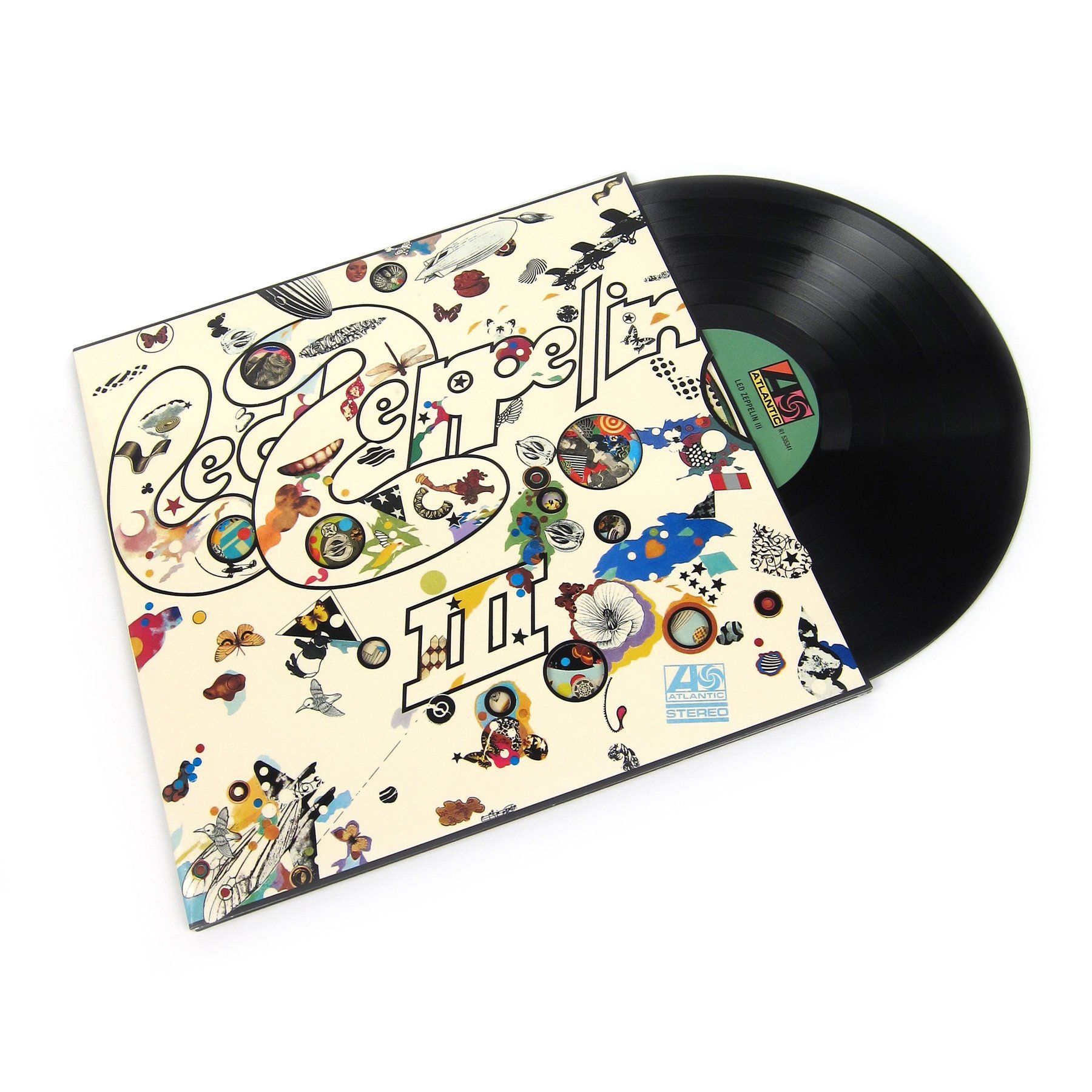Led Zeppelin - Led Zeppelin III 50th Anniversary Review ★★★★☆

Led Zeppelin’s understated third album, Led Zeppelin III, turns 50 years old today (October 5). Flavoured with an array of folk influences and acoustic instrumentation, the album experienced a polarised reception upon its release, despite broadening the band’s musical palette.
For many fans expecting to hear another helping of Zeppelin’s beefy blues rock sound, the third album came off as underwhelming. Guitarist, Jimmy Page, veered away from amplified distortion, instead using the humble acoustic guitar to underpin 6 of the album’s 10 tracks. Meanwhile, lead vocalist, Robert Plant, suppressed his bellowing rock voice for the elegant ballads, ‘Tangerine’ and ‘That’s the Way’.
However, the band’s tougher blues rock roots still permeate the album; tracks such as ‘Immigrant Song’, ‘Celebration Day’, and ‘Out on the Tiles’ are bursting with hard rock riffs, with John Bonham’s impressive thundering drums setting the pace. The record’s blending of hard rock and folk was a major turning point in the band’s career; folk music would permeate Zeppelin’s later records, such as Houses of the Holy (1973), and Physical Graffiti (1975).
To explore where Led Zeppelin III’s signature folk rock sound originated, context is crucial. By January 1970, Led Zeppelin were exhausted from two years of gruelling touring and needed a break, so Page and Plant retreated to a place named Bron-Yr-Aur, a remote 18th century cottage tucked away in the beautifully unspoiled Welsh countryside. A holiday cottage until recently, I was fortunate enough to have spent many summers at Bron-Yr-Aur as a child, a magical place responsible for some of my fondest childhood memories. We were often visited by diehard Zeppelin fans who had made the pilgrimage to the sacred spot, where writing for Led Zeppelin III had begun all those years ago.
With such an evocative charm, it’s easy to see how Bron-Yr-Aur inspired the album’s imaginative songwriting. Plant’s love of Tolkien-esque fantasy and Norse mythology colours the album’s lyrics with vivid folklore, that was surely encouraged by the stunning scenery he found himself in.
The band’s country blues ode, ‘Bron-Y-Aur Stomp’, although misspelled on the album sleeve, is not so much about the cottage itself, but recalls Plant’s walks around the surrounding country lanes with his loyal pet dog, Strider. But arguably, Bron-Yr-Aur had the biggest impact on Led Zeppelin III in a more practical sense; with no running water or electricity, amplifying electric guitars was out of the question, compelling Page to write music exclusively on the acoustic guitar.
From the brooding psychedelic folk of ‘Friends’, which features an ominous string arrangement by bassist and keyboardist, John Paul Jones, to the expert balladry of ‘That’s the Way’, Page experimented with open-chord acoustic guitar tunings, adding another authentic blues ingredient to the Zeppelin recipe.
Perhaps the most memorable of the album’s acoustic tracks is ‘Gallows Pole’, Zeppelin’s take on a traditional English folk song that has evolved over centuries. Beginning slowly with a modest acoustic guitar riff and single vocal, the song’s tempo accelerates into a lightning-fast bluegrass jam, assembled with layer after layer of instrumentation. Jones’s parallel mandolin and bass parts join first, followed by the cleverly off-kilter shuffle of Bonham’s snare-driven groove. By the end, Page has added banjo, 12-string and electric guitar into the mix, as the exhilarating track careers through its crescendo.
However, side one of the album is where most of the heavier tracks are found. The galloping Viking rock opener, ‘Immigrant Song’, is instantly recognisable for Plant’s howling war-cry vocals and Bonham’s relentless thundering groove. Strangely, younger generations may recognise the song from its feature in the film, Shrek the Third, of all places!
But none compares to the stunning seven-minute epic, ‘Since I’ve Been Loving You’, which forges the centrepiece of the album, and is among the band’s best compositions. With Bonham’s crisp beat laying the foundations, the track begins delicately with Page’s elegant blues guitar, and Jones’s measured organ lines, and explodes into an expressive blues rock zenith, punctuated by Page’s killer guitar solo and Plant’s searing vocals.
When it comes to Zeppelin’s hard rock canon, ‘Since I’ve Been Loving You’, is often sidelined by classic tracks from the band’s other albums, such as ‘Whole Lotta Love’ (from Led Zeppelin II), and ‘Black Dog’ (from Led Zeppelin IV). This is most likely because the folk vein of Led Zeppelin III took the sting out of its heavier songs, which is rather unfortunate.
But the band’s third album remains one the most diverse and intriguing chapters in the Zeppelin discography; the band’s first major foray outside their blues rock domain. It’s certainly a listening treat to rediscover all these years later.
Besides, the charm of Bron-Yr-Aur and Page’s unplugged ventures for Led Zeppelin III, led him to write one of the most recognisable acoustic guitar riffs in music history; the band’s trademark hit, ‘Stairway to Heaven’, was just around the corner.
Image by Pinterest
